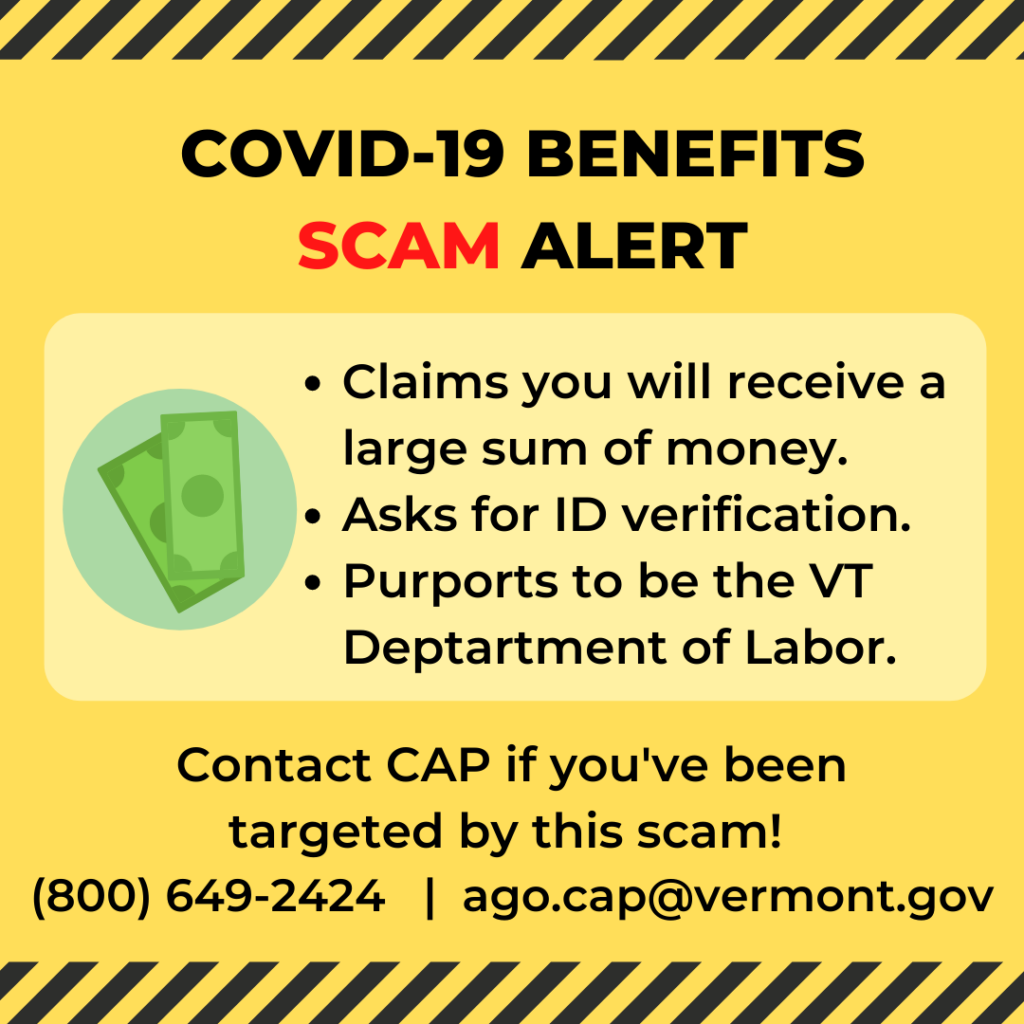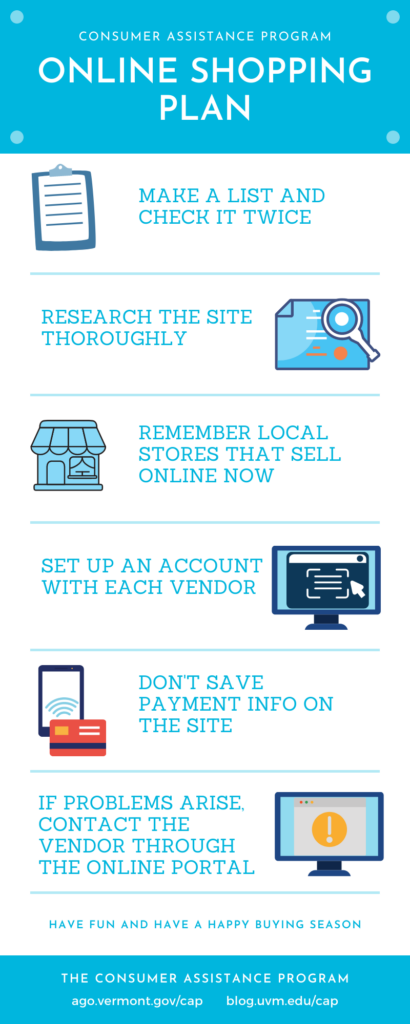
Today, our office issued a scam alert to warn about a scam that monopolizes on our COVID-19 hardship. The email claims that the Vermont Department of Labor has recognized the difficulty the pandemic has caused and will pay $3750 starting today. All that is needed is identity verification. What Vermont family couldn’t use this extra help? Especially while many Vermonters enter the holiday season.
According to a recent UVM study, 1 in 3 Vermonters are food insecure (Niles, et al. UVM). You and I may have guessed that. The lines at food drives and food shelves have gotten longer, not shorter. The Everyone Eats program is overloaded with participant families. Vermonters are hungry, in search of hope, and then in comes this email promising prosperity and money. It is despicable.
Just think what you could do with that money. You could buy a traditional Thanksgiving meal at the grocery store, like you always used to. You could ensure your family is well fed over holiday breaks. You could give your children a winter season worth remembering.
Unfortunately, with this scam and all phishing scams, the scam keeps going once the information has been provided to the scammer. Accounts are opened in your name without your knowledge or consent. The scammers could even use the information they have gathered to apply for unemployment insurance benefits in your name.

The fact that a scam outfit would capitalize on the pandemic is inconceivable. Let’s teach these scammers a lesson. The more who know about this scam, the less will respond. Share this information with your community and others you care about. When you share, be sure to let others know if they receive one of these notices:
- Move scam emails to your junk folder.
- Block text messages.
- Do NOT click on any links or attachments.
- Do NOT respond and do NOT send money.
Call the Consumer Assistance Program at 800-649-2424 if you have questions, concerns, or need help determining if you have been a victim of a scam. Learn more about the scam and report it to the Vermont Department of Labor: https://labor.vermont.gov/news/ui-fraud-alert-active-phishing-attempt
If you have basic needs that are not being met, such as access to food, warmth, and shelter, connect with your local Community Action Agency and 211. They can help connect you to resources and assistance in your community.

